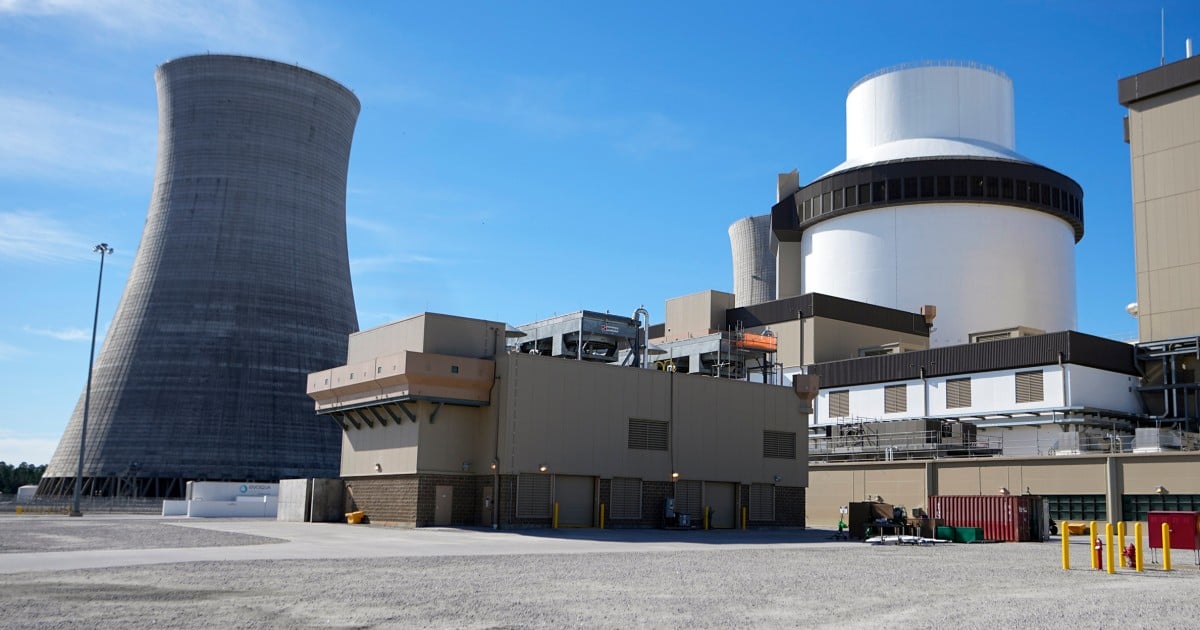First U.S. nuclear reactor built from scratch in decades enters commercial operation in Georgia::ATLANTA — A new reactor at a nuclear power plant in Georgia has entered commercial operation, becoming the first new American reactor built from scratch in decades.



See earlier in the thread. The waste is highly radioactive, of course, and very hot for some time. First it is dumped in pools. If the pool floods or cracks, you end up with the Fukushima issue. Fortunately that went to the ocean primarily and so was diluted. But in the US, much of the country is landlocked and it would instead enter ground water.
Second, once the material is cooled enough to transport, it is supposed to be moved to a secure location, dropped deep into the ground, and encased in concrete. At this point if there are no earthquakes and water doesn’t enter and damage the concrete, this will stay put for a thousand years or so, but eventually it will get out long before it’s safe considering some of it takes around 250,000 years for it to decay enough to be safe.
As for what France does, as I mentioned, the US has not developed or built that tech because there is ultimately no profit in it and the US is unwilling to spend tax money on it. So it would fall to increased energy cost for the consumer in places where nuclear is used, and no one is going to like that. The cost of building the reprocessing facilities and doing the actual processing outweighs the value of the produced product. And building the first one is going to be the most expensive, and no modern energy company is likely to want to take the hit to short term stock prices in order to take it on. And conservatives won’t approve tax increases at all in the current political climate. And progressive places have already started moving to renewables instead since it’s cheaper.
First Ford, then Carter stopped commercial re-processing in the United States. Reagan brought it back. G. H. W. Bush then put the brakes on it but stopped short of an outright ban. Clinton stepped on the brakes even harder but again stopped shy of a full ban and when Bush Jr came into office he started a slow process of bringing it back. That’s as far as this CRS Report goes although there may be an updated one somewhere out there.
Still, the US has spent money on it and was doing so at least as recently as 2008. It appears the biggest worry we have is proliferation of nuclear material, not profit or cost.
The problem is that by the 80s and 90s we were trying to wind down production of nuclear weapons as the cold war was winding down. Some of these reprocessing methods, like in France, reprocess the plutonium, and modern reactors just don’t produce plutonium anymore. Also, some of the methods create uranium that is enriched to as much as 20%. With terrorism a big concern, that would be a pretty tempting target.
That being said, we are developing the tech, just very, very slowly. And now that renewables are cheap, it’s just not necessary to have so many fueled generators. So the long term profit just isn’t there for companies to want to invest. The area where I live is primarily hydro power, which is one of the more predictable renewables. But offshore wind farms give a pretty steady flow as well. And in deserts concentrated solar power can generate enough energy during the peak times when A/C is being used. And if there were better battery tech, more could be stored for use at night than currently is, and wind is still pretty reliable due to the changes in temperature from day to night.
Of course we still need fueled generators, but we shouldn’t be expanding them, we should be concentrating on using them only as a backup to renewables.